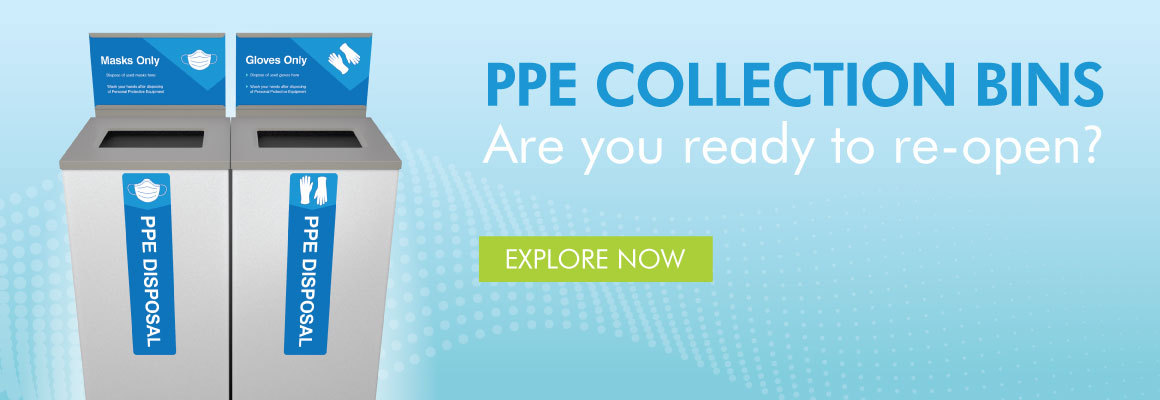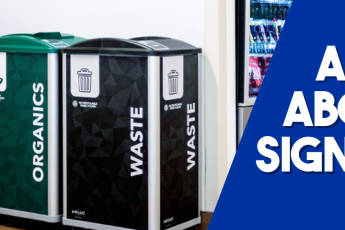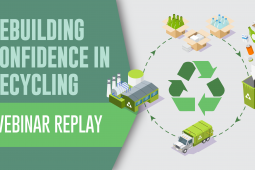For more information on how to build an exceptional recycling program in your office, click here.
As many businesses begin to bring employees back into their office spaces, it is clear that there is still a high risk of spreading COVID-19 and other common flu viruses within the workplace. So what are some of the things you can do to ensure the safety of your employees and decrease the possibility of spreading these viruses?
In order to make office spaces safe for employees, the World Health Organization (WHO) has made a number of recommendations to help reduce the spread of COVID-19 and other viruses. We have taken these suggestions very seriously and wanted to share some tips with you to help ensure your office is as safe and as clean as possible so that you can get back to business.
Why is this Important?
Labs are working hard on finding out more and more about the coronavirus every day, but what we do know is that it is extremely contagious and can be fatal in some cases. Making these changes to your office not only protects your employees but protects the people outside of your organization that they come in contact with.
There are three known ways in which the coronavirus is easily spread:
- Respiratory droplets from coughing and sneezing
- Close personal contact
- Touching an object that has the virus on it, and then touching your mouth, nose, or eyes before washing your hands
Because office spaces often include many shared surfaces and encourage personal contact between team members, proper cleaning, hygiene, and education to employees is crucial in preventing the spread of the virus. Many other viruses can be spread in the same ways, and can also be prevented with a small effort to keep your office safe.
It is also important to remember that your employees have lives outside of work. The people entering your building (whether they have the virus or not) are not safe in contact with each other simply because they see each other every day. Your employees are likely going to grocery stores, gas stations, and other businesses that are still operating, and exposing themselves to the virus every time they clock out. Every morning brings a new potential that one or more of your employees has come in contact with the virus, which is why these suggestions are important to encourage every day.
How to Prevent the Spread of Viruses in your Office
- Proper Distancing
WHO has recommended that employees keep a safe distance of at least 1 meter (or 3.3 feet) between them. This means arranging desks and workspaces to accommodate a safe distance, as well as evaluating the setup of other spaces such as meeting rooms, lunchrooms, and warehouses to encourage employees to keep their distance. Many workplaces have used tape or bright paint in measured areas to mark the safe distance for employees. This will decrease the likelihood of employees accidentally getting too close to others.
- Personal Protective Equipment (PPE)
Medical face masks are successful in preventing respiratory droplets from transferring to other people or surfaces, which is why many businesses have encouraged or required employees to wear them in the office. Another common PPE item in the office is gloves. Disposable gloves can be useful in certain scenarios to ensure that surfaces remain free from contact. The most sanitary and effective way to use gloves in the office is to provide single-use disposable gloves when an employee may need them and encourage employees to put them on and remove them safely while refraining from touching their personal items or their face with the gloves on.
- Frequent Cleaning of Surfaces
Offices tend to have many communal spaces that multiple employees come in contact with every day. Washrooms, door handles, copy machines, boardrooms, elevators, and coffee machines are all just examples of common office spaces that need to be cleaned frequently. Some offices provide disinfectant wipes and encourage employees to wipe these spaces after use. Other offices have hired extra cleaning staff to make sure spaces are being cleaned frequently.
- Hand Hygiene Stations
It is incredibly important to encourage employees to wash their hands frequently. Placing hand sanitizer in high traffic areas as much as possible makes hand hygiene convenient, increasing the willingness of employees to keep their hands clean as much as possible.
- Education and Propaganda
The more you update your employees, the more information they will have to help keep your office safe. Updating employees with verified facts about the virus ensures they have correct information on how to keep themselves and their peers safe, which minimizes any false facts they may have read online. It is also important to spread the message of proper hygiene daily in as many ways as possible. Signage, posters, emails, and any other common form of communication can remind your employees to wash their hands, wipe down communal spaces, and use/dispose of PPE properly.
- Staggered Shifts and Breaks
Staggering your staff’s shifts and breaks when possible can help drastically reduce the spread. Asking staff to take their breaks at different times keeps communal areas such as lunchrooms and break spots less busy. The same can be said for staggering shifts when possible. Not every workplace is able to accommodate this, but those who can are significantly decreasing the amount of staff in the building at a time which naturally helps reduce potential exposure.
- Stay Home if Exposed
Encourage your employees to stay home if they know they have been exposed to the virus, or if they are experiencing symptoms. This may seem simple, but many people feel uncomfortable asking for time off, and encouraging them to not take the risk is extremely important for all of your other employees.
How Does This Change an Office’s Waste Management Program?
In order to make sure their office spaces are clean and safe, many companies have either hired cleaning staff for the first time or hired more cleaning staff than usual to keep up with the increased effort required for sanitization and cleanliness in the office. The virus has also changed the appropriate ways of handling waste and cleaning products, meaning that some of the instructions that need to be relayed to cleaning staff have also changed.
Here are some suggestions for updating your waste management in your office to align with safety measures in light of the coronavirus.
- PPE Disposal
One of the new challenges that may not have been considered in your office before the coronavirus is the proper disposal of PPE. You may need to purchase new containers that are specifically designed and labeled for employees to dispose of masks and gloves. If you do not plan to purchase separate containers, it is important to educate your employees on which stream their PPE belongs. For example, if your recycling guidelines require masks to go in the waste, you will need to explain to your employees that this is a safe place to put their masks. PPE is often at a higher risk of coming in contact with the virus than other materials, so it is important your custodians handle these streams with care when servicing. This will also increase the amount of volume in the waste streams, which means frequent servicing may be necessary depending on the number of employees in your office and how frequently they are disposing of their PPE.
- Updating Signage
At Busch Systems, we are always encouraging businesses to update their waste, recycling, and organics signage to help their employees understand what materials belong in each stream. With new materials such as anti-bacterial wipes, gloves, masks, hand sanitizer, and soap bottles added to your program, this will likely cause some confusion. Contact your hauler to find out where each of these materials belong, and take the time to educate your staff accordingly to avoid contamination and decrease the risk for your custodial staff.
- Non-Contact or Anti-Microbial Waste Containers
Waste containers can be a popular spot for bacteria to linger, which means it’s time to evaluate the function of your containers. If there are lids or any sort of obstacles the require contact on your containers, consider removing them or purchasing new containers to eliminate the need for contact. If you have lids that have openings and don’t require contact, consider having your custodial staff wipe them frequently just in case contact is made. Sometimes an item is too large for the opening, and employees may have to touch the lid to dispose of it. Busch Systems also offers an Anti-Microbial lid that provides a hostile environment for the virus, reducing the risk of it living on the surface and transferring to the people who touch it. This is a much safer option for your employees and custodial staff that can help prevent the spread during use and servicing.
- Apply Updates and Precautions to Other Cleaning Procedures
While updating your waste management program, you may want to consider other cleaning and maintenance changes. Increased soap and sanitization will cause more volume in your waste stream unless you are purchasing these products with recyclable or biodegradable packaging. Hand towels and anti-bacterial wipes are also likely to increase in use, so consider checking with your provider and your hauler to see if your paper towels and wipes are compostable in your area.
It is also important to label new cleaning solutions. This is usually required by workplace law, but it is easy to forget as we bring in new cleaning solutions and substances that many staff have access to. Make sure your cleaning supplies are labeled according to your local workplace laws and understood by staff so that they are used safely and effectively.
–
Of course there are many things you can do to help improve the health and safety of your employees, but making these simple changes in your office is a great place to start. If you have any other tips on how you’ve been keeping your office space clean and green, don’t hesitate to contact us! We would love to share any techniques that have been working well for you in order to help other organizations stop the spread of viruses in offices around the world!




























